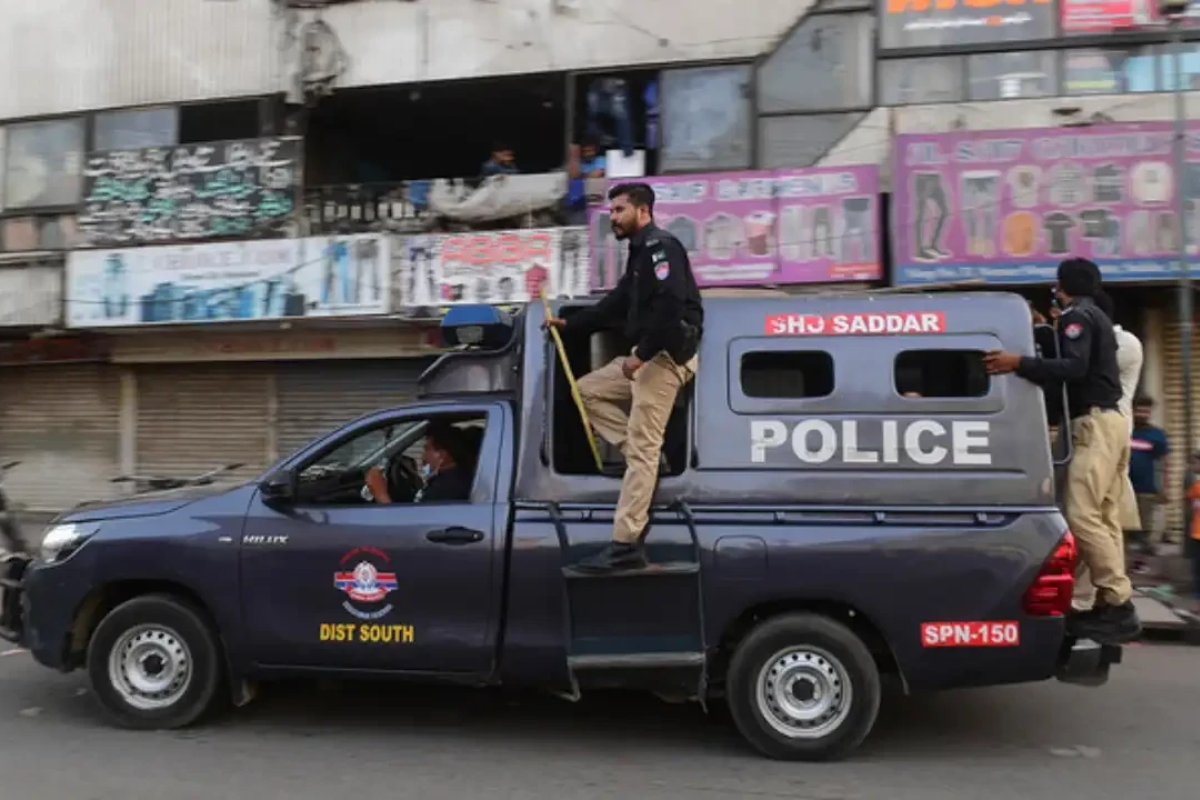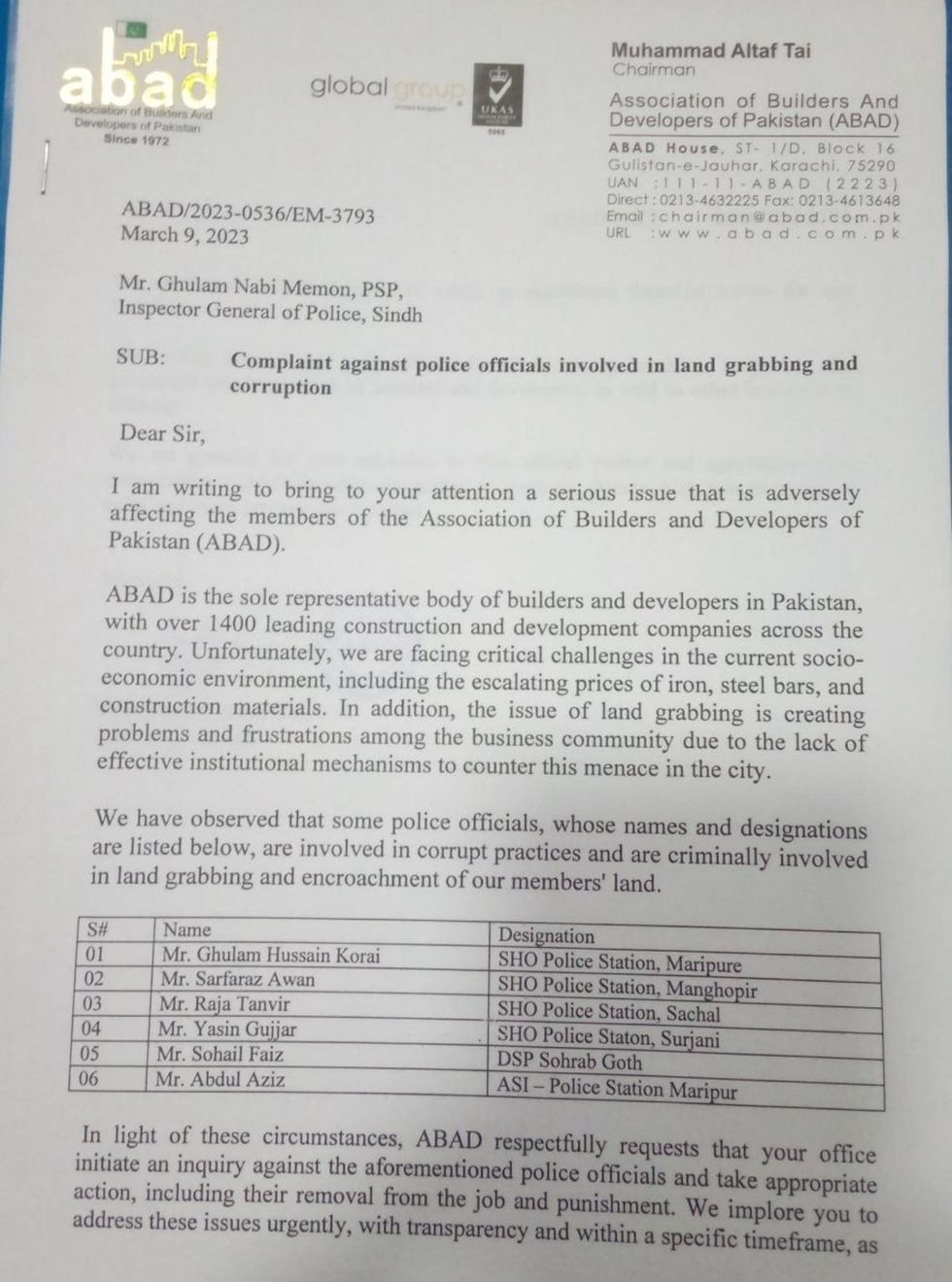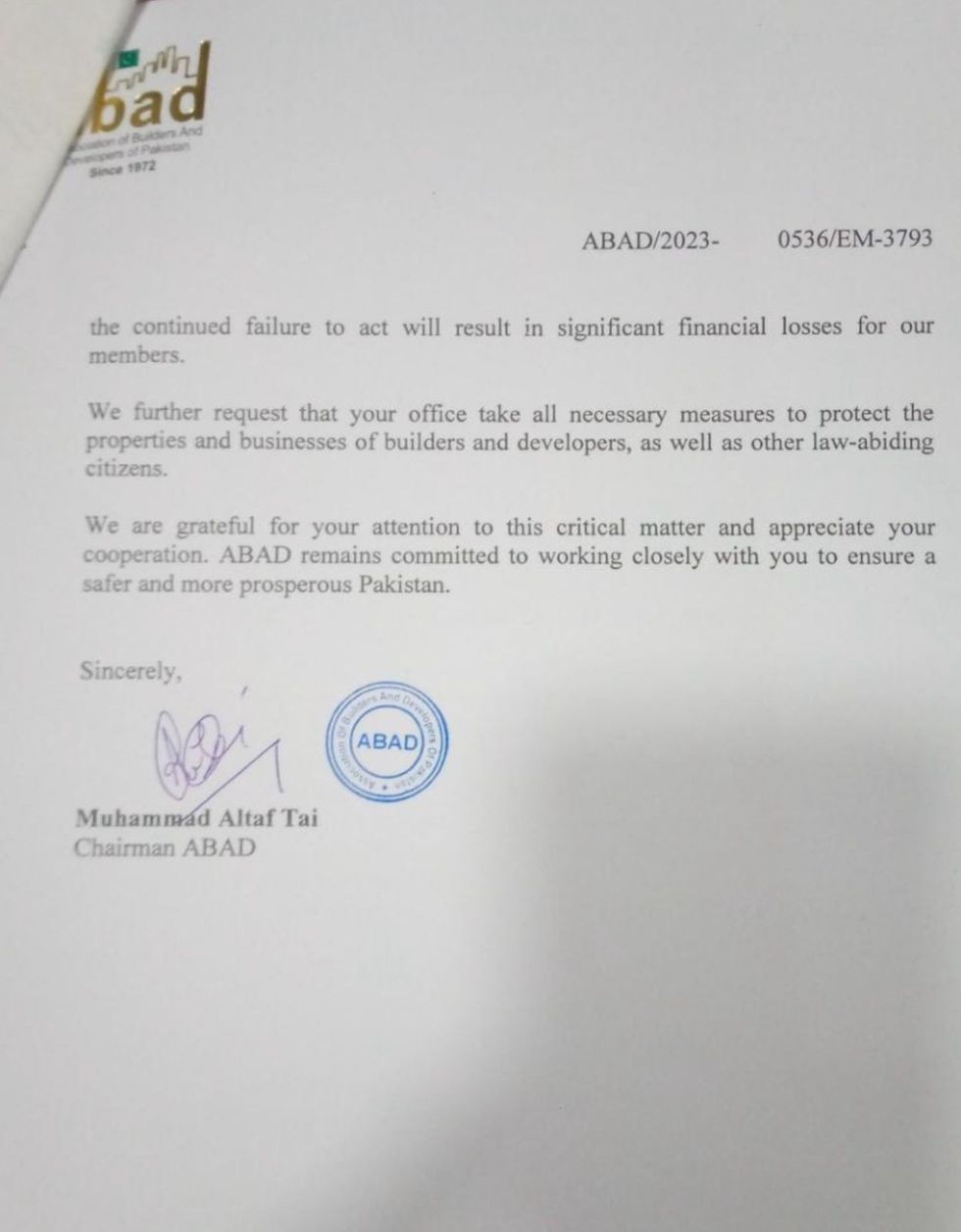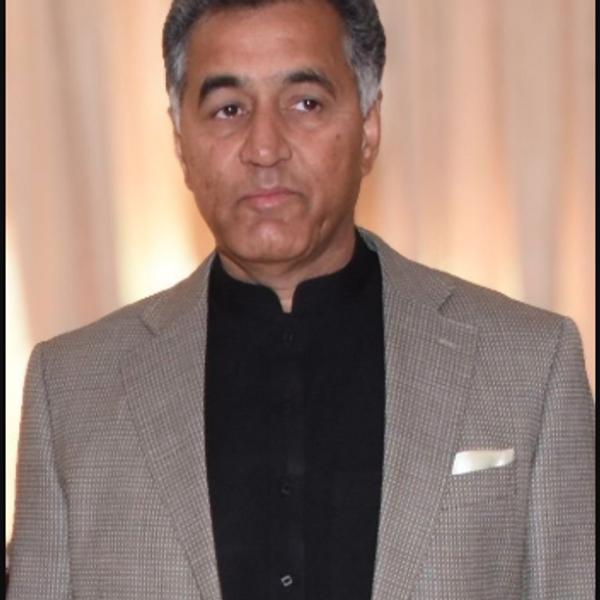Karachi Police officers punished as crackdown on land grabbers begins in Pakistan's financial hub
Initiative comes following business community's complaints to Pakistan's army chief
Ahmer Rehman
Senior Correspondent
Ahmer Rehman Khan is a experienced Journalist with over 17 years of expertise, specializing in crime and investigative reporting. His career includes serving as the Chief Crime Reporter at Samaa TV, where he led significant coverage of crime events. Prior to that, he held Senior Correspondent roles at major news networks including Geo TV, Dunya TV, Express TV, and Aaj News.

On December 12, the Sindh Police suspended senior officers said to be implicated in land grabbing and organized crime.
AFP/File
Authorities appear to have launched a sweeping crackdown on land-grabbing mafias and corruption networks run by police officers in Pakistan’s financial capital Karachi, following the business community's complaints to the army chief about organized land encroachments under the patronage of government officials.
Chief of Army Staff (COAS) General Syed Asim Munir met with the city's business community last month. Following this meeting, detailed investigations were launched into land grabbers, their facilitators, and officials demanding bribes for basic services.
On December 12, the Sindh Police suspended senior officers said to be implicated in land grabbing and organized crime. Among those suspended were SHO Manghopir Ghulam Hussain Korai, SHO Mochko Basheer Ahmed Wadho, SHO Boat Basin Naseer Tanoli, and SHO Clifton Azam Hussain Rajpar.
The officers have been transferred to the B Company (Black Company) unit, signaling a firm response to their alleged misconduct. B Company is a term used by the police to describe assignments where officers are unable to engage in corrupt activities or make illegal money
In a related development, Zameer Ahmed Abbasi, the secretary of the Sindh Board of Revenue, was also removed from his position. Sources allege Abbasi was a key player in the land-grabbing network. Deputy commissioners from multiple districts, including Keamari, Malir, and Jacobabad, have also been reshuffled as part of efforts to break the "system".
The complaint
In the meeting with the army chief, the Karachi business community and the Association of Builders and Developers (ABAD) raised alarms over these activities, alleging systematic corruption involving government officials and police officers.
According to ABAD, powerful mafias have been occupying government and private lands, particularly in KDA Scheme 41, including sectors 13/1 and 13/5 in Surjani Town.
ABAD's earlier letter to the inspector general of Sindh Police, dated March 9, 2023, had named five police officers allegedly involved in land encroachments. Despite the damning allegations, no action was taken until now.


A letter penned by Member of Provincial Assembly (MPA) Abdullah Sheikh, representing PS-117, to the director general of the Karachi Development Authority (KDA) and the inspector general of Sindh Police, also highlighted the issue.
Sheikh claimed the land-grabbing operations were being facilitated by corrupt elements within the police and bureaucracy, leaving legitimate property owners at the mercy of encroachers.
Sources from security institutions revealed that these operations are allegedly tied to influential political figures. However, under new directives, such activities will no longer be tolerated. Evidence, including lists of corrupt officials and their collaborators, has been gathered, and the crackdown is underway.
The action
A senior Karachi police officer confirmed on condition of anonymity that complaints were received from the business community regarding misconduct by SHOs and chowki in-charges, leading to their suspension and transfer to B Company.
He cited land-grabbing allegations and political influence as reasons for actions against SHO Manghopir Ghulam Hussain Korai and SHO Mochko Basheer Ahmed Wadho. SHOs Boat Basin Naseer Tanoli and SHO Clifton Azam Hussain Rajper were also transferred due to connections with a prominent Sindh figure, he said.
Also speaking on condition of anonymity, a former IG Sindh criticized the lack of police-business community interaction, expressing shock that complaints had to be made directly to the army chief. He said this meant the Karachi police chief and DIGs were not meeting with the business community to resolve issues.
He stated that the IG Sindh serves primarily as an administrative post, and it is the responsibility of the Karachi Police Chief and DIGs to build trust with the business community.
The former provincial police chief questioned how SHOs could be involved in land grabbing and expressed disbelief over SSPs and DIGs continuing to work with such officers. He criticized the lack of action against these SHOs.
He emphasized on proactive measures during his tenure to address such issues by involving SHOs and DSPs in direct meetings with stakeholders.
'A positive step'
Talking to Nukta, Chairman ABAD Hassan Bakshi commended the removal of officers involved in the corrupt system, calling it a positive step. However, he emphasized that the fight against these entrenched networks is far from over.
“This is an ongoing process against such elements, and we are hopeful for the best. In our meeting with the army chief, we shared our concerns, and his response was clear and decisive—he said he would not tolerate anyone hindering Pakistan’s progress,” Bakshi stated.
He expressed satisfaction with the recent actions but noted that private builders had lost hundreds of acres of land to mafias in Manghopir, Surjani, and Maripur over the past five years. He revealed that some builders chose not to file complaints out of fear.
Renowned builder and chairman of Gohar Group of Companies, Hanif Gohar, echoed similar sentiments. “We have been raising this issue for three years with various officials, but no action was taken. It was only after our November meeting with the COAS, where we submitted written complaints, that things began to change,” he said.
Gohar revealed that ABAD had lodged a complaint against a mukhtiarkar - a Sindh government administrative officer - in Scheme 33. This individual was first transferred, and then the operation was initiated. “We are optimistic that this operation will lead to the arrest of key players and prevent them from continuing their activities,” he added.
How the 'system' works
Gohar detailed how the corrupt system operates:
- Alteration of land records: A mukhtiarkar illegally changes land records, transferring ownership to their name.
- Police involvement: The SHO of the relevant area provides protection, enabling encroachers to build boundary walls or settle people on the land.
- Extortion: Once the land is secured, the mafia demands money from the rightful owner to reclaim their property.
He estimated that this racket has generated billions of rupees over the years.







Comments
See what people are discussing